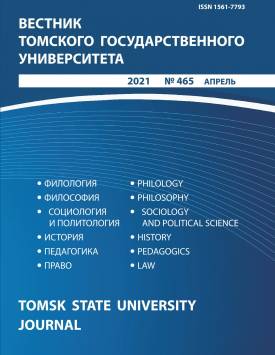Three Ways to Overcome the Problem of Confidential Military Disclosure in the Investigation (Forensic and Criminal Procedure)
In the article, the authors examine the problematic aspects connecting with the concept “state secret” and its relationship with the concepts “military secret” and “confidential information” based on the deep analysis of the empirical material, data systematization, analysis of the criminal cases initiated and investigated against the military personnel and also from the survey of practitioners (military personnel). The questions are raised about the need to improve the investigative tactics on the territory of military units or institutions. The article focuses on the problem related to the need to clarify the answers to the questions an investigator may have in criminal cases at the legislative level, e.g., What data may contain information that is a state secret or another secret protected by law? On which grounds should the investigator (inquirer) evaluate information as containing a state secret or another secret protected by law? How should the investigator (inquirer) act if they conclude the received or recorded information can be classified as a state secret or another secret protected by law? The problem is complicated by the fact that, in addition to the absence of the concept “military secret” in Russian legislation, not many scholars have taken the liberty to approach the problem doctrinally, to offer an authorial view on the concept and to formulate proposals that could fill the gaps in legislation. The authors conclude that it is necessary to develop measures to prevent dissemination of information in the military field in order to ensure the security and defense of the country. Three ways of developing these measures are proposed. Firstly, the development and normative consolidation of a special legal regime in criminal proceedings against military personnel is important. Secondly, it is necessary to improve the special methods of crime investigation committed by military personnel, investigative tactics, as well as criminal case consideration and resolution in the court of first instance. Thirdly, there is a serious need for a scientific and theoretical support of enhancing activities connected with confidential information, developing the concept “military secret” and its relationship with a state secret or another secret protected by law, delimiting information for official use and secret information.
Keywords
state secrets, military secrets, crimes committed by the military, tactics of investigation, military unitAuthors
| Name | Organization | |
| Lebedev Nikolai Yu. | Novosibirsk Military Institute of the Internal Troops named after General of the Army I.K. Yakovlev of the Ministry of the Interior of the Russian Federation | lebedevnu@rambler.ru |
| Lebedeva Yulia V. | Siberian Institute of Management, Branch of the Russian Presidential Academy of National Economy and Public Administration | lebedeva28031973@rambler.ru |
| Tolstova Irina E. | Novosibirsk State Agrarian University | irina_edvin@mail.ru |
| Kaloshina Tatiana Yu. | Novosibirsk State Agrarian University | kaloshinatu@mail.ru |
References

Three Ways to Overcome the Problem of Confidential Military Disclosure in the Investigation (Forensic and Criminal Procedure) | Vestnik Tomskogo gosudarstvennogo universiteta – Tomsk State University Journal. 2021. № 465. DOI: 10.17223/15617793/465/28
